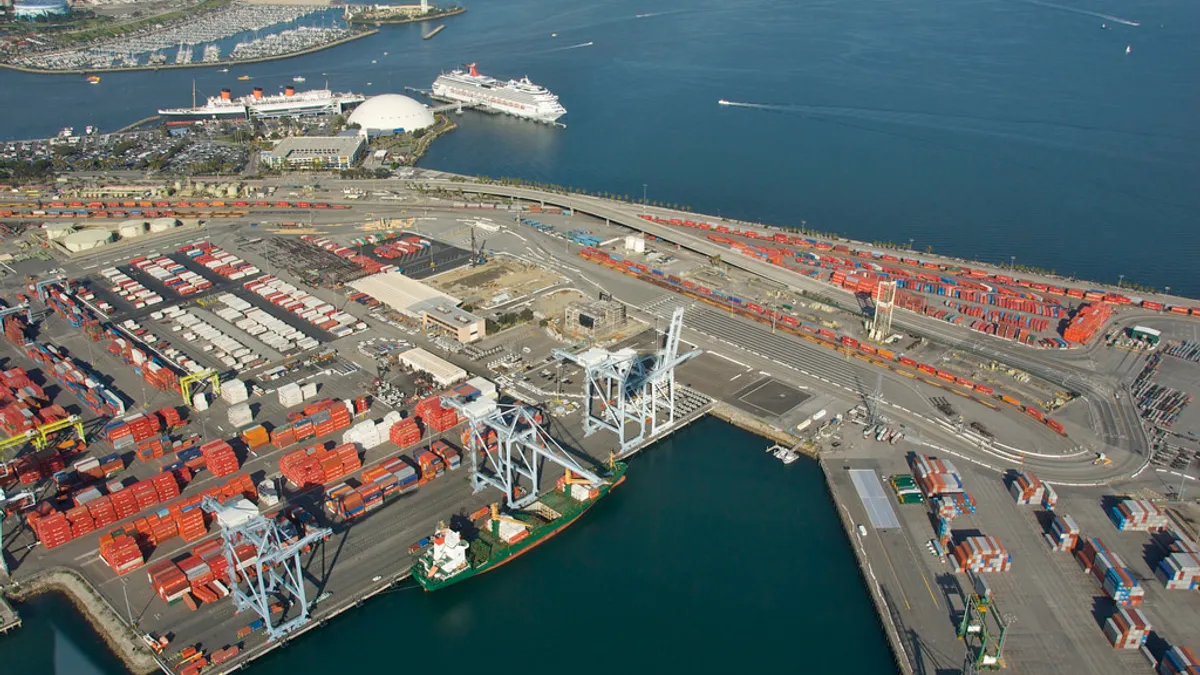Dive Brief:
- GE Transportation and the Port of Long Beach have launched a pilot to coordinate data on cargo arrival and availability of equipment, aiming to improve cargo flows, according to a press release.
- The pilot uses GE's Port Optimizer software and involves three out of the six Port of Long Beach container terminals: Long Beach Container Terminal, Total Terminals International and International Transportation Service.
- In addition to GE's software, the port will also use an Internet of Things (IoT) platform from software company GeoStamp to assess truck congestion.
Dive Insight:
Transparency into port operations has been a contentious issue among shippers, driving the U.S. Federal Maritime Commission (FMC) to recommend data sharing and visibility into operations, in hopes of avoiding the distrust that emerged after West Coast port strikes.
GE's pilot with the Port of Long Beach is a step in the direction towards transparency throughout the supply chain, with the software serving "many stakeholders across the port complex, including but not limited to marine terminal operators, ocean and motor carriers, railroads and beneficial cargo owners."
Through the software, terminal operators and other supply chain players get advanced notice of cargo arrival. Knowledge of a cargo's ETA helps more efficiently route trucks to the port, so drivers are not left waiting at ports for several hours due to incoming cargo delays.
That planning is especially critical under the ELD mandate, as a driver's shift could end before the cargo is loaded from the port, creating further delays in cargo reaching its final destination.
While technology such as GE's Port Optimizer can enhance port and terminal operations, it's additionally beneficial to the supply chain and flow of cargo if shippers, carriers and intermodal players also have access to the data generated through the software.
"Moving goods more efficiently through this important gateway is the key to accommodating future cargo growth," Long Beach Harbor Commission President Lou Anne Bynum said in a release.
Cargo volumes at the Port of Long Beach have had their ups and downs, but overall averages for the year signal strong growth. The port hit a record high for container import volumes in June 2018, bringing in nearly 348,000 TEUs.
"For the calendar year, the Port of Long Beach is on pace for its busiest year ever, topping 2017," the port stated in a press release, even as July container volumes dipped about 9% compared to June.
If volumes continue their growth trajectory, the port will need to assure it has the necessary data and tools to support the increasing flow of cargo through its container terminals.















